The Rat Terrier is an all-American breed that was developed to be a feisty hunter and affectionate companion. Their small size makes them quick and adept at rooting out rats, but also makes them a portable dog. They are a curious, fun, and lively companion for farms and families alike. You can expect a small and sturdy adventurer in this breed. Read on to learn more about the Rat Terrier.
Description of the Rat Terrier
The Rat Terrier comes in two sizes, miniature and standard. Both are tough ratters and love to work. You can often find them running around your backyard in search of small furry rodents to dig out.
Like many other terriers, the Rat Terrier can be independent and strong-willed. But give them some guidance and they will quickly learn what is right and wrong. They are affectionate with those they know and love spending time playing games with their family.
Their compact body is well muscled but still lean and wiry. The big pointed ears of this breed are always alert and listening for potential signs of trouble. Their smooth coat is short and dense, coming in various shades of pied, meaning patched, patterning.
Life Expectancy and Size
These generally hardy dogs live an average of 12 – 18 years, but certain health problems may shorten their lifespan. Always work with a reputable breeder for the best chances of getting a healthy puppy.
The miniature variety of Rat Terrier stands 10 – 13 inches tall and the standard is 13 – 18 inches and they weigh 10 – 25 pounds.
Protective Ability
The Rat Terrier is a very protective dog. They carefully, sometimes jealously, guard over their families and properties and are especially good at keeping vermin out of the way. They take some time to warm up to strangers but can be great friends once they are introduced.
Training
The Rat Terrier is a smart and highly trainable breed. They are quick to learn and love spending time with their owners and are always eager to train.
Positive training methods are the best way to approach teaching your dog. Treats are an especially effective training tool for this breed. They are often eager to learn but if you find your dog in need of some extra motivation treats are a great place to start.
As a high-energy breed, games and canine sports are also a great way to train your dog. This will provide them with training, an outlet for their energy, and bonding time with you.
Early socialization is also an important aspect of training for this breed. This will help them grow into well-mannered dogs.
Energy Level
Like many terriers, the Rat Terrier is full of energy and loves to move. Whether this is playing with you, digging bottomless holes in the backyard, or seeking out small vermin, this breed is always looking for a job. Providing them with plenty of energy outlets everyday will help keep them calm and happy.
If you are willing to put in enough playtime, this breed can also be a snuggly and affectionate dog that enjoys lazing around with more sedentary families. Just know that they need to exercise to get to this point.
What Living with a Rat Terrier is Like
This is an all around kind breed.
These dogs make feisty and fun companions. They love to dig and are quite energetic, but with enough exercise make great cuddle buddies. They do well with other dogs they have been raised with and are very fond of kids.
More sedentary families can have a great time with this breed, so long as they are ready to commit enough daily time to exercise and playing. The Rat Terrier is a lively breed, but they don’t need too much exercise so this breed can do well in less active families.
Care of the Rat Terrier
The Rat Terrier is quite adaptable. Apartment or farm, this dog can do well as long as they get enough exercise, mental stimulation, and family time.
Environmental Needs
Predominant around the South, the Rat Terrier tolerates heat very well, but their thin coat does little to protect them from the cold. If you live in a cooler climate consider getting your dog a jacket and limiting time outside.
Exercise Needs
Canine sports, games, backyard playtime, ratting, and long walks are all great way to exercise out the ample amount of energy your Rat Terrier has. Expect to spend at least 40 minutes a day exercising your dog.
The Rat Terrier is an avid digger so giving them a designated space to dig and keeping them busy will help prevent them from rooting around your favorite flowerbeds for furry invaders.
Shedding and Grooming
The smooth and short coat of the Rat Terrier requires little maintenance to keep it healthy and clean. Weekly brushing is enough to remove loose hairs and dirt. During shedding season, which happens once a year, expect an uptick in the amount of brushing you are doing. A bath every month or so is plenty to keep their fur clean.
This breed sheds some, but not heavily.
Regular nail trimmings, ear cleanings, and teeth brushings are all important elements of good hygiene for your dog.
Ideal Home Environment
These terriers are popular with families as their small size, great energy, and wonderful temperament with kids and other dogs makes them the perfect choice for most activities. They can do well in almost any home, as they are an adaptable and happy breed. Just provide them with activity and companionship and they will be happy.
The Rat Terrier is a very protective and alert breed. They make excellent watchdogs and are wary of strangers, but will become fast friends with anyone they are properly introduced to.
While often healthy, this breed may suffer from health problems that can be costly or time consuming to deal with.
Health Concerns
Hip dysplasia and patellar luxation are common problems for the Rat Terrier. Always work with a reputable breeder who screens for potential genetic conditions.
Other issues include allergies, Legg-Calve-Perthes syndrome, cardiac disease, and eye problems. Regular check-ups can help catch, treat, or prevent these problems.
Behavior Problems
Digging is the number one problem with the Rat Terrier. Training them early, giving them a certain place to dig, and providing them plenty of outlets for their energy best combats this.
Chasing is the other big thing for this breed. Always keep them fenced in or on leash when they outside to make sure they don’t run off after a squirrel or other neighborhood pest.

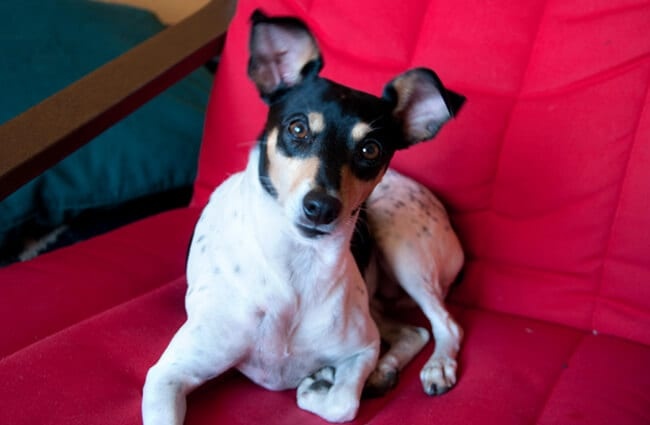
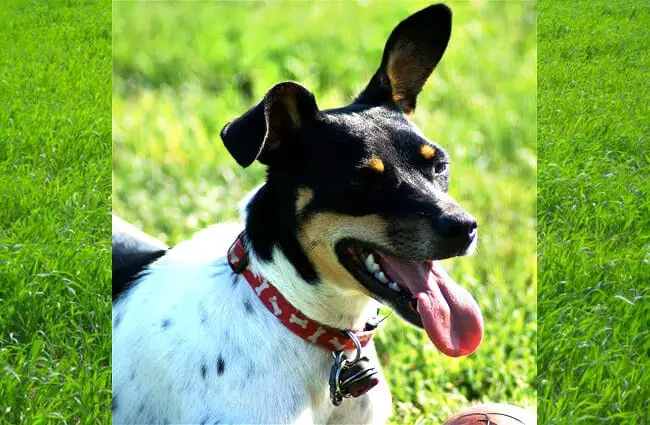

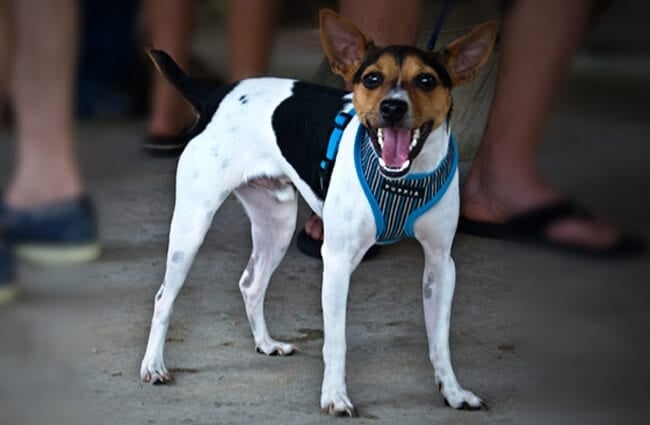
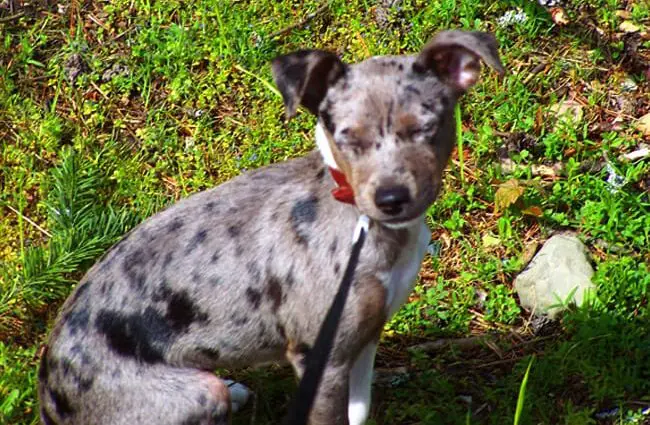






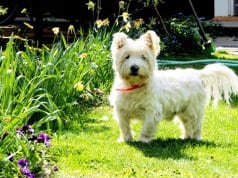











![Red Angus Closeup of a beautiful Red Angus cowPhoto by: U.S. Department of Agriculture [pubic domain]https://creativecommons.org/licenses/by/2.0/](https://animals.net/wp-content/uploads/2020/03/Red-Angus-4-100x75.jpg)

